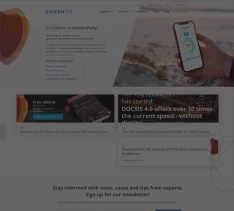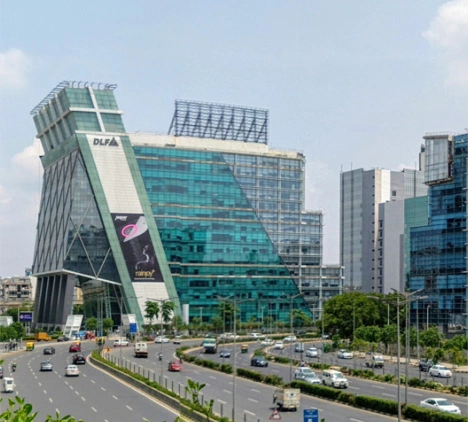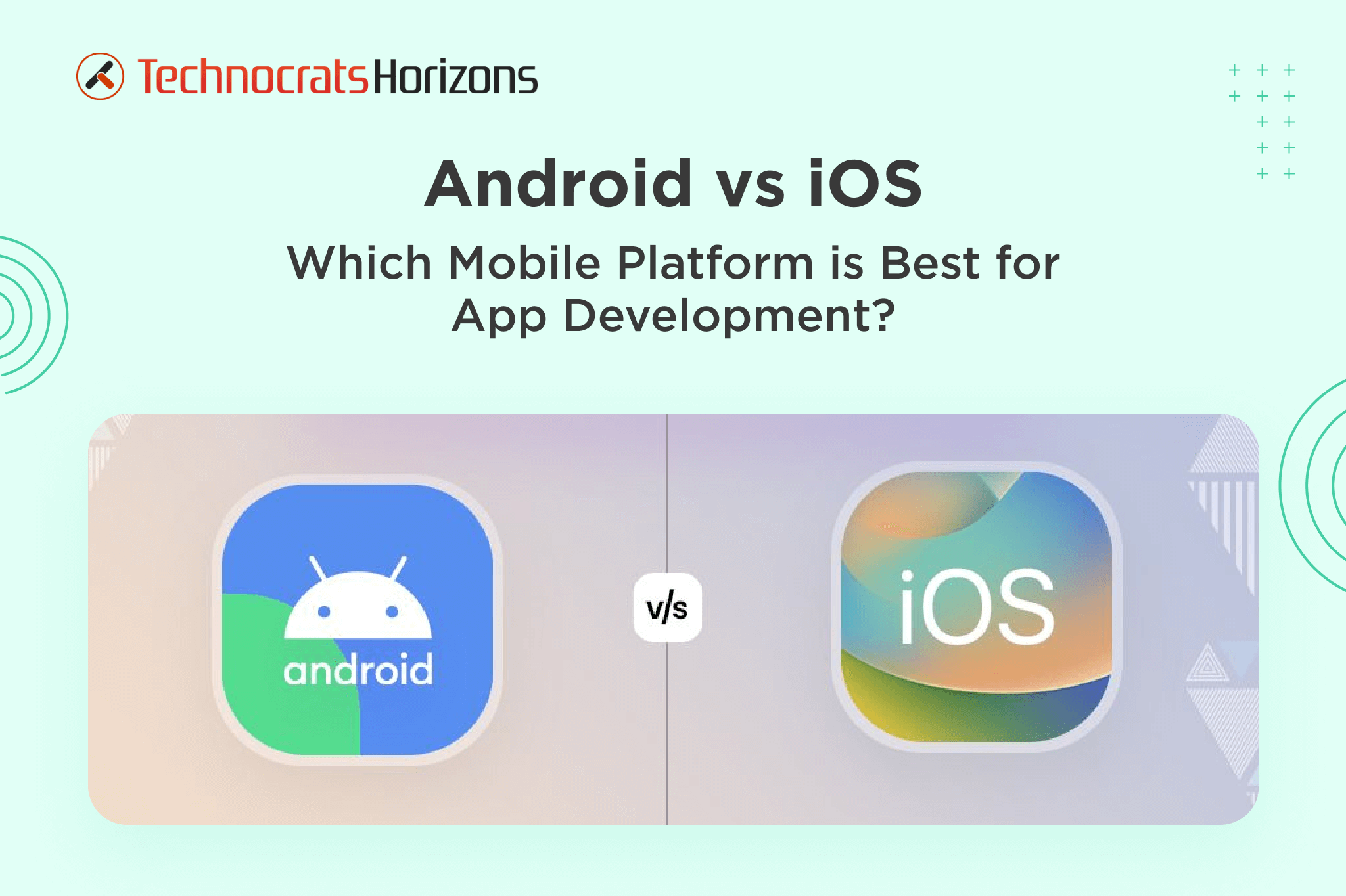In today’s competitive app development landscape, choosing the right mobile platform can significantly impact the success of your app.
In a digital world where mobile apps have become an integral part of our lives, the battle between Android and iOS has captured the attention of tech enthusiasts, developers, and businesses alike.
As these two giants vie for dominance, the question remains: Which mobile platform is the ultimate choice for app development? Each platform has its strengths and weaknesses, and understanding the key differences can help you make an informed decision.
In this blog post, we’ll delve into the nuances of Android and iOS, exploring factors that differentiate these platforms. By the end, you’ll have a clearer understanding of which platform suits your needs. So, let’s dive in!
Android vs iOS: Some Insightful Stats
- Android maintained its position as the dominant operating system worldwide in the latest quarter of 2023, capturing a market share of 71.63%. Its closest competitor, iOS, followed with a market share of 27.71%.
- Apple provides an alternative subscription model that allows developers to retain 85% of their subscription revenue, in contrast to Google’s 70% revenue share after the initial year.
- According to Sensor Tower, the projected expenditure on in-app purchases by mobile users is expected to reach $233 billion by 2026, marking a significant increase from $132 billion in 2021.
- By 2026, Google Play is estimated to contribute 143 billion downloads, whereas the App Store is predicted to reach 38 billion downloads.
- The development of iOS apps is known to be faster than that of Android apps. When compared to Android, iOS development is approximately 40% quicker.
Android vs iOS App Development: The Key Differences
Programming Languages
Let’s start with the building blocks of app development: programming languages. Android relies on Java or Kotlin, with Kotlin gradually taking the lead as the preferred language for Android app creation. Over 60% of Android developers now opt for Kotlin.
On the other hand, Apple’s ecosystem supports Swift and Objective-C. Since the introduction of Swift in 2014, it has gained popularity, with a majority of iOS developers choosing to work solely with Swift.
Complexity
One common concern among prospective developers is the complexity of mastering each platform. Android, being supported by various manufacturers and an open-source ecosystem, presents a challenge in creating apps that are compatible across a diverse range of devices.
Conversely, iOS apps face a rigorous review process and stringent guidelines, making it more time-consuming and challenging to develop and release apps within Apple’s closed ecosystem.
Enterprise Apps
Remember the era when Blackberry dominated the corporate market? Well, those days are long gone. Apple’s products are renowned for their security, which is why major businesses like IBM collaborate with Apple to create corporate devices. However, heightened security often means sacrificing certain features.
On the other hand, Android, being open source, offers a broader range of devices and functionalities. While Apple users need to purchase iPhones or iPads to utilize your app, Android’s market dominance worldwide is driven by its widespread adoption across numerous devices.
Target Market
Understanding your target audience is paramount for any successful application. One key distinction between Android and iOS users is their brand loyalty. iOS users tend to be loyal to their favorite brands, while Android users are more price-conscious and seek a favorable price/quality ratio.
Demographics also play a role in determining the target market, with countries like the US, Canada, and Australia showing a greater financial reward for iOS apps, while Android dominates in regions like Asia, Eastern Europe, and South America. If global reach is your goal, Android app development can be a favorable choice due to its larger market share.
Publishing Process
Publishing your app to the respective app stores is an essential step in reaching your target audience. Apple’s App Store has a stringent review process that prolongs the release time, while Android developers can quickly upload their apps to the Google Play Store for a one-time fee.
Updates and changes to Android apps are also more efficient, as they can be made available within hours of submission. Conversely, each iOS update goes through a meticulous review process, resulting in longer wait times for users.
Interface
When it comes to developing the visual elements of your app, both Android and iOS utilize XML documents. However, iOS has an edge in terms of animations, which are often more refined and visually appealing.
Google aims to enhance Android animations through its upcoming releases and the development of Material Design, a design style that focuses on improving user experience. Apple, on the other hand, has always prioritized intricate and fantastic animations to enhance user satisfaction.
Security
Security is a vital aspect of app development. While it’s easier to post an app on Google Play, it’s also more susceptible to containing malware. Apple’s App Store has stricter moderation, ensuring a safer and more secure environment for users.
Although Google’s approval process is quicker, familiarizing yourself with the standards of both platforms is essential to ensure your app complies with their requirements. Apple sets a higher standard for security than Android but lags in terms of approval time.
Development Cost
Developing an app for both iOS and Android comes with its own set of costs. iOS app development tends to be more expensive due to the need for a Mac machine and an Apple developer license. Additionally, testing iOS apps may require multiple iPhone or iPad models, adding to the expenses.
On the flip side, the availability of affordable development tools and a wide range of Android devices makes Android app development generally more cost-effective. However, both platforms require ongoing maintenance and updates, which contribute to the overall costs.
ROI and Monetization
App monetization is a crucial consideration for developers. In terms of in-app purchases, Android apps account for 22% of total spending compared to 17% for iOS apps. However, iOS apps have a higher average transaction cost per purchase.
Advertising-based monetization is popular on both platforms, with iOS having a higher percentage of non-gaming apps utilizing advertisements. Both Android and iOS provide opportunities for generating revenue, and the choice depends on your target audience and monetization strategy.
Must Read: How Investing In Custom Mobile App Development Can Empower Your Business
Android vs iOS: Pros and Cons
iOS Pros
- The user interface is clean and intuitive, making it easy for users to navigate and enjoy a consistent experience across different iOS devices. It is also easier to develop than Android.
- iOS users are known to be more willing to spend money on in-app purchases, which can translate into higher revenue for iOS app developers.
- Apple has built a reputation for prioritizing user data protection, ensuring that your app operates within a secure environment, and providing developers with robust security features to keep users safe.
- Apple’s limited range of device models provides uniformity which streamlines the development process, saving you development time and effort.
iOS Cons
- Developing for iOS can be more costly because you’ll need a Mac machine and an Apple developer license.
- While iOS offers a sleek and consistent user experience, it also limits the degree of customization available to developers.
- Apple’s commitment to quality means that your app will undergo a thorough review process for app approval and updates which is very time-consuming.
Android Pros
- Android enjoys a larger global user base, and if expanding your user base is a priority, Android’s market dominance can work in your favor.
- Android provides developers with greater flexibility and customization options.
- Unlike the closed ecosystem of iOS, Android’s open-source nature gives developers more visibility into the system’s workings.
- Developing Android can be more cost-effective due to the availability of affordable development tools and a wide range of Android devices.
Android Cons
- Although Android boasts a larger user base, iOS users tend to spend more on in-app purchases.
- The open nature of Android, coupled with the ability to install apps from third-party sources, can expose it to a higher risk of security vulnerabilities.
- Android runs on a wide range of devices with varying screen sizes, hardware specifications, and software versions.
- To ensure your app works seamlessly on Android, you’ll need to test it on multiple devices which can be a time-consuming process as you need to account for different screen sizes, resolutions, and hardware configurations.
Remember, these pros and cons provide an overview, and the importance of each factor may vary depending on your specific project goals and requirements.
Also Check: 9 Reasons Why Your Business Needs a Mobile App to Thrive in 2023
Best of Both Worlds
If you’re hesitant to choose between Android vs iOS, hybrid app development provides a solution. Hybrid apps, created using JavaScript and HTML5, allow you to develop for both platforms simultaneously.
This approach doesn’t require advanced coding knowledge and significantly reduces expenses. Additionally, hybrid apps can be released more quickly compared to native development, bypassing the long wait associated with separate platform releases.
You can hire an expert mobile app development company or hire outsourced mobile app development services for hybrid app development.
iOS vs. Android: What Should Be Your Final Choice?
Ultimately, choosing the right platform depends on a clear understanding of your product, target audience, budget, monetization potential, and customization requirements. Each platform offers unique advantages and considerations.
Choose Android if:
- You want to expand your reach to a wider audience.
- You want a higher level of customization and flexibility.
- You want to spend less on hardware.
- You want to deploy your app on the Google Play Store as soon as possible
Choose iOS if:
- You want an uncomplicated and faster development process.
- You are looking for loyalty and higher revenue.
- You want to provide a highly secure app experience.
- You’re targeting the Western market which has a higher number of iOS users.
If you’re still undecided, consulting with experienced professionals can provide valuable guidance tailored to your specific needs. At Technocrats, we possess the expertise to help you navigate the complexities of mobile app development.
So, why not schedule a FREE consultation with us today? Let us assist you in making the right choice for your app development journey!
Get App Solutions That Immediately Stand Out!
Talk to our experts to understand how our app solutions can boost your productivity.


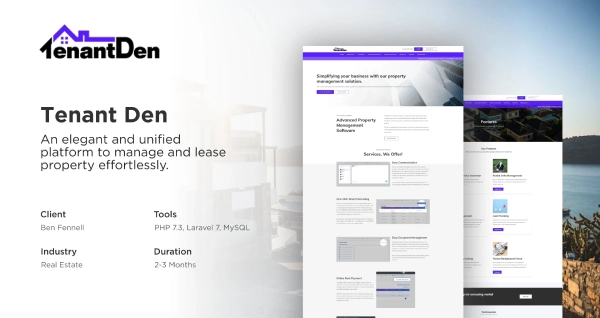






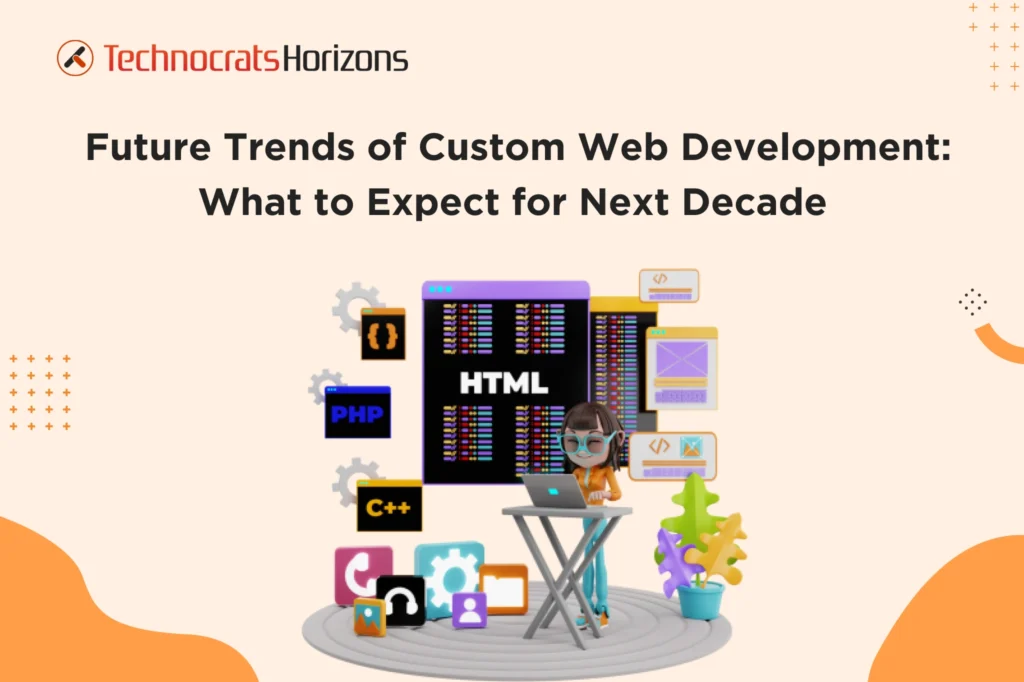

 Request a
Request a















